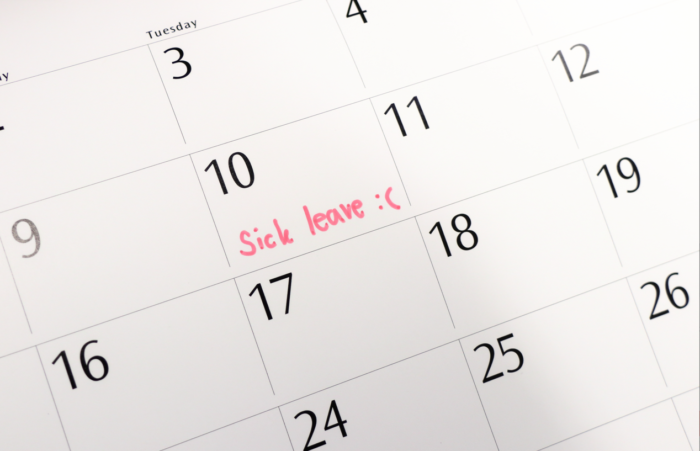New research has shown that individuals between the ages of 50 and 64 are more inclined to take sick leave from work than any other age group.
Conducted by personal injury experts at claims.co.uk, the research analysed data on sickness absence provided by the Office for National Statistics spanning from 2018 to 2022. The goal was to pinpoint which demographic groups are most prone to work-related absences and to identify the primary reasons behind these absences.
Annually, the UK workforce collectively loses an average of 146.6 million days due to sickness, roughly equating to 4.5 days for each worker, or nearly a full workweek.
The study revealed that workers aged 50 to 64 experience more workdays lost compared to any other age group, with an average of 56.3 million total days lost per year. Per worker, this translates to roughly 6.1 days of annual leave.
In contrast those aged 25-34 lose an average of 3.4 days per worker per year; those aged 35-49 lose 4.3 days on average, while workers aged aged 65 and over lose an average of just 4.1 days due to sickness per year.
With January on the horizon, employers become particularly vigilant about absenteeism as employees grapple with the flu season, post-holiday blues, and holiday-related ailments.
Regarding gender, the research found that women call in sick for 2.6 per cent of their working days per year, signifying a 49.4 per cent increase compared to their male counterparts.
In addition to identifying the demographics with the highest sick leave rates, the study also shed light on the primary reasons for absenteeism. Minor illnesses like coughs and colds emerged as the leading cause, accounting for an average of 33 million days lost annually.
With the approach of ‘Blue Monday’ — the day identified as being particularly high for sickness rates,, the data also revealed that mental health conditions, including stress, depression, and anxiety, contribute to 12 per cent of lost working days.
Geographically, certain regions showed a higher propensity for sick leave. Workers in the North-East, encompassing areas such as County Durham, Northumberland, Tyne-and-Wear, Hartlepool, Middlesbrough, and Sunderland, reported the highest sickness absence rate. They lose an average of 5.1 days per worker each year, equivalent to around 6.2 million days annually, representing a 48% increase compared to 2018.
The East Midlands followed closely behind, with an annual average of 4.9 days lost per worker, equivalent to 11.4 million days annually. This region comprises Derbyshire, Nottinghamshire, Leicestershire, Lincolnshire, Northamptonshire, and Rutland.
Third in line is Yorkshire and The Humberside, with an annual average of 4.8 days lost per worker. This area includes cities like Bradford, Calderdale, Doncaster, Hull, Leeds, North Lincolnshire, Sheffield, Wakefield, and York, with a collective loss of 12.5 million days each year.
Surprisingly, workers in Wales took more sick days compared to any other UK country, losing approximately 5.9 days per worker annually, while Scotland (4.8), England (4.4), and Northern Ireland (4.4) reported considerably fewer absences.
Commenting on these findings, a spokesperson for Claims.co.uk emphasized the far-reaching consequences of sick leave: “Sick days lost from work can have detrimental effects on both workers and the company. For employees, frequent absences due to illness can result in increased stress and workload upon return, negatively impacting their overall job satisfaction and well-being. From the company’s perspective, a reduction in workforce attendance can lead to productivity losses and delayed project timelines. Given the contagious nature of minor illnesses, it’s no wonder they frequently lead to sick leave as they can spread quickly. Many are also left particularly vulnerable when commuting on public transport to work.”












